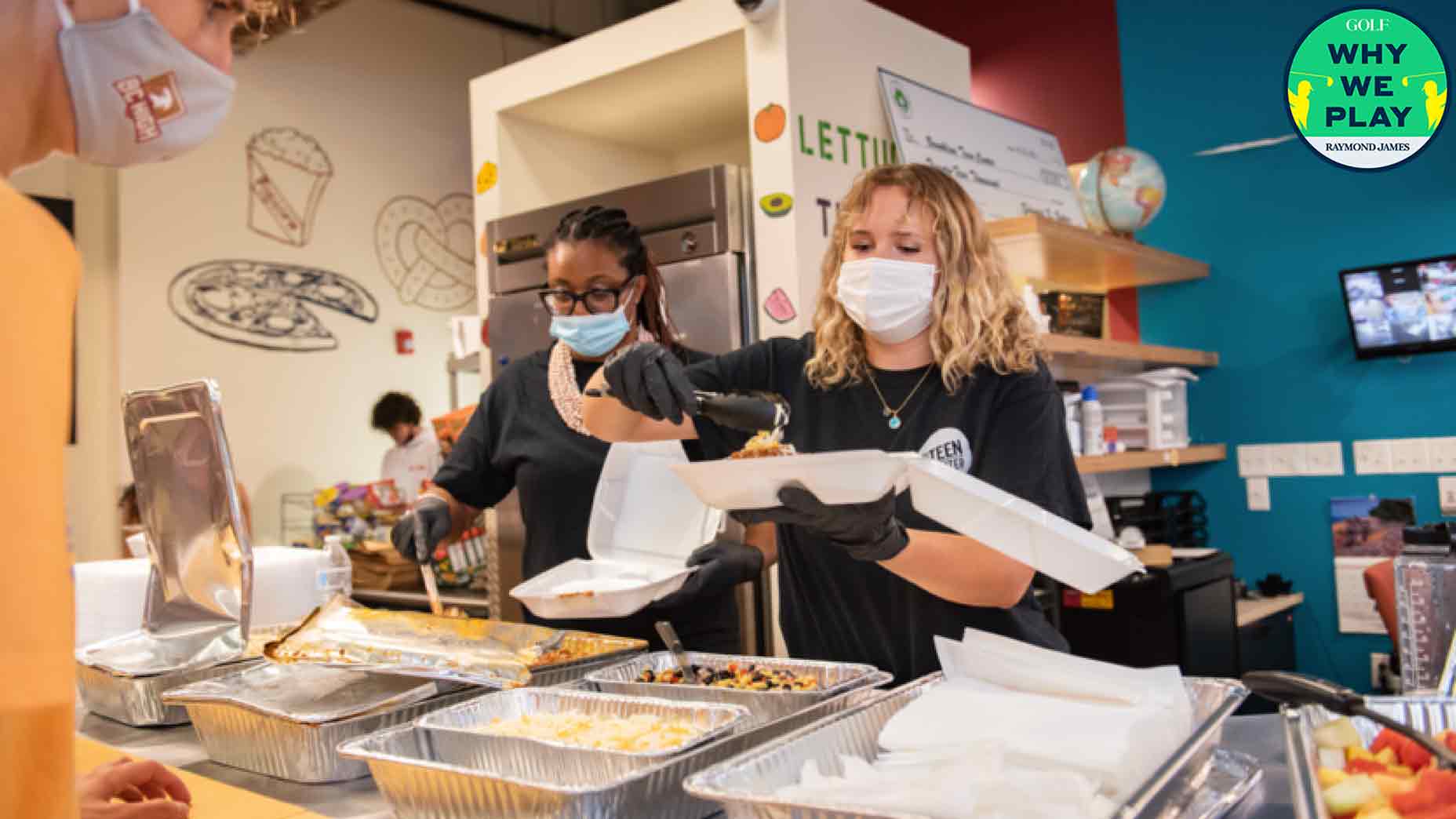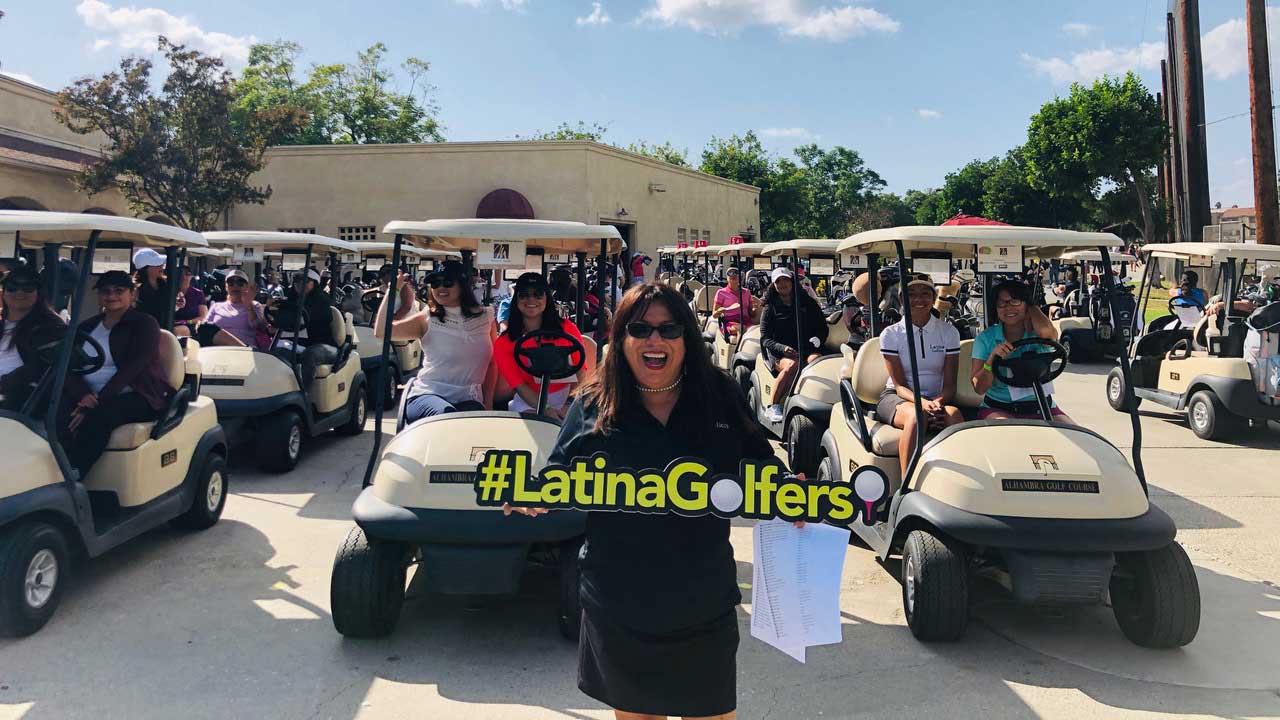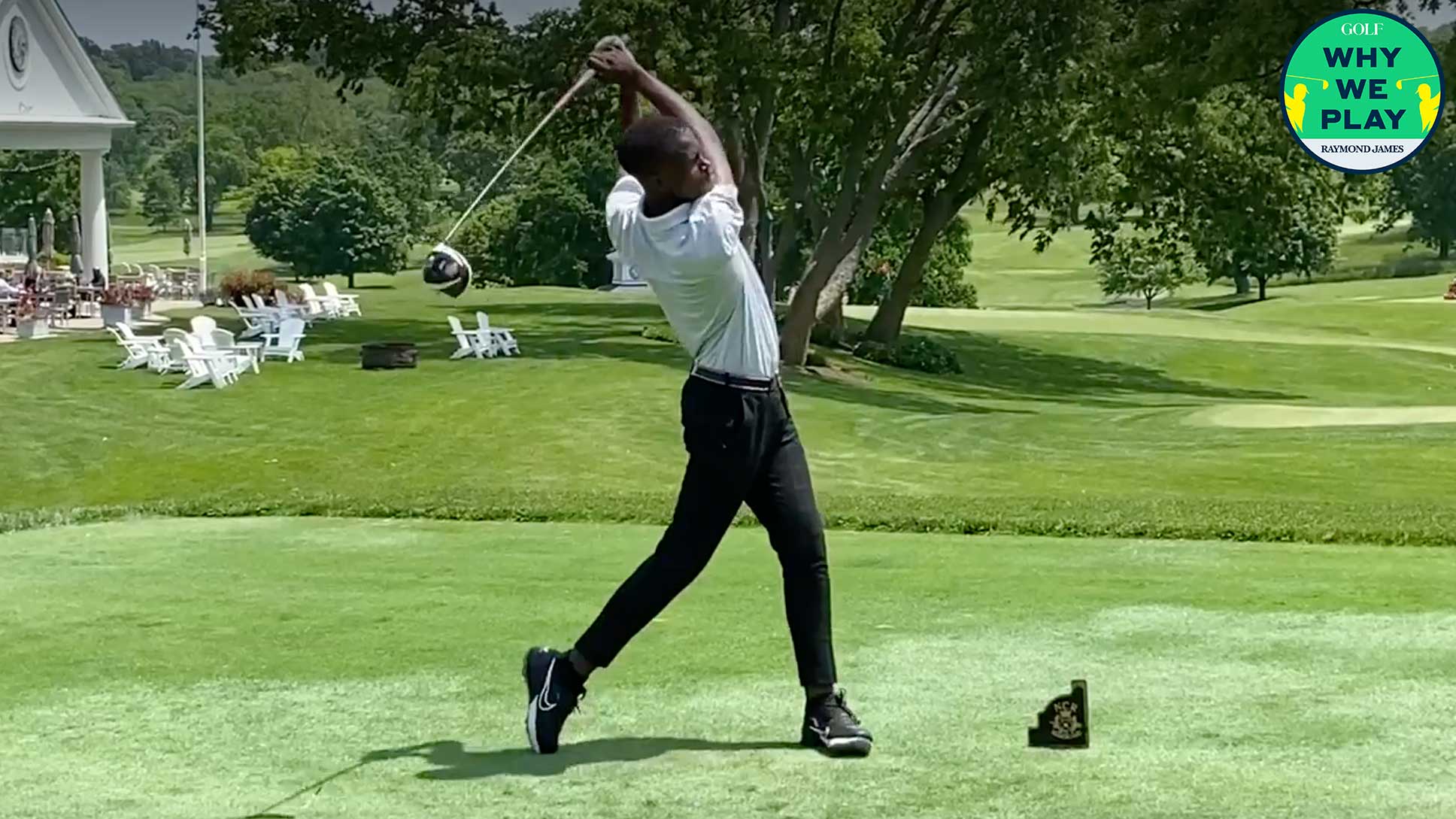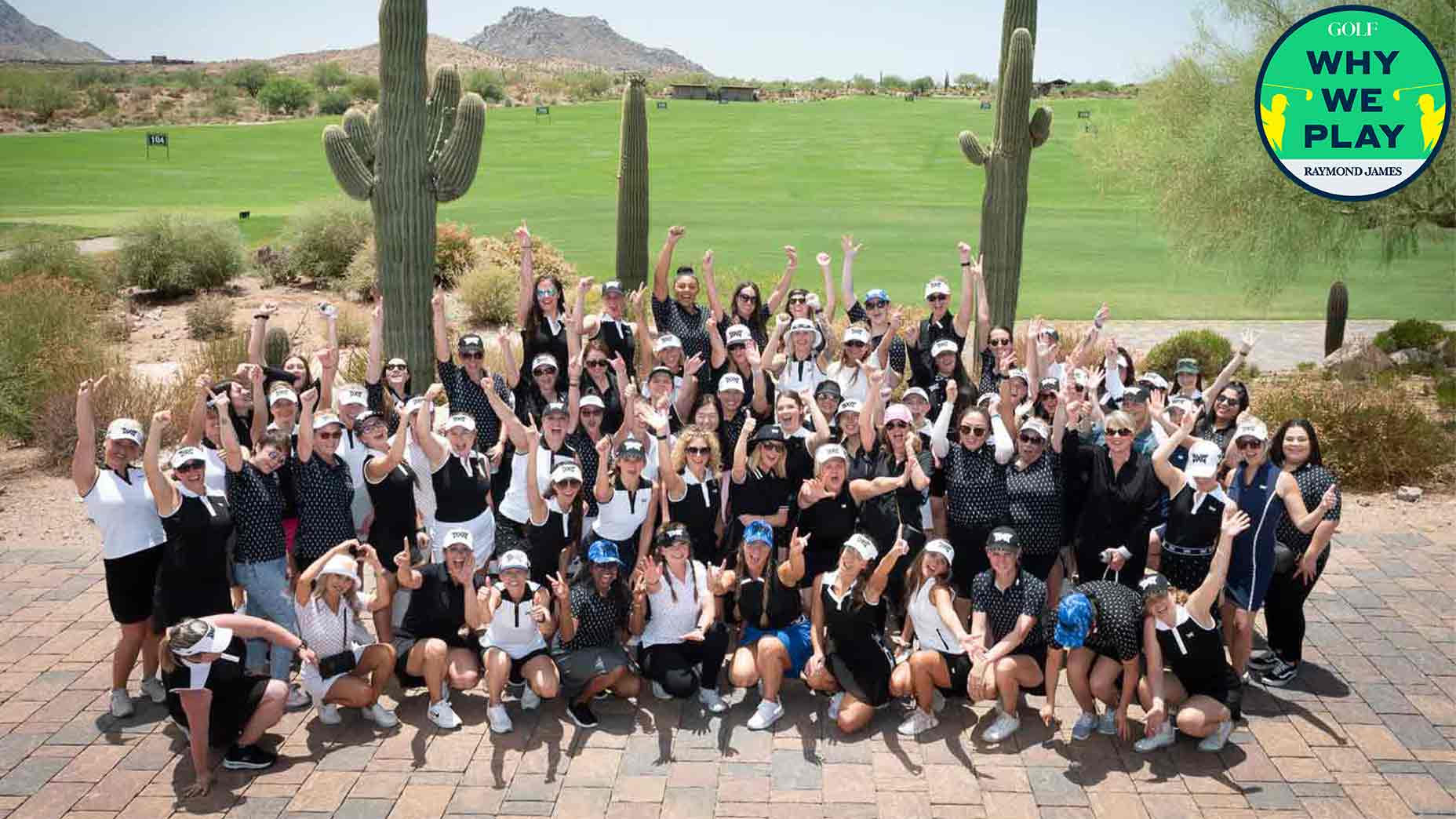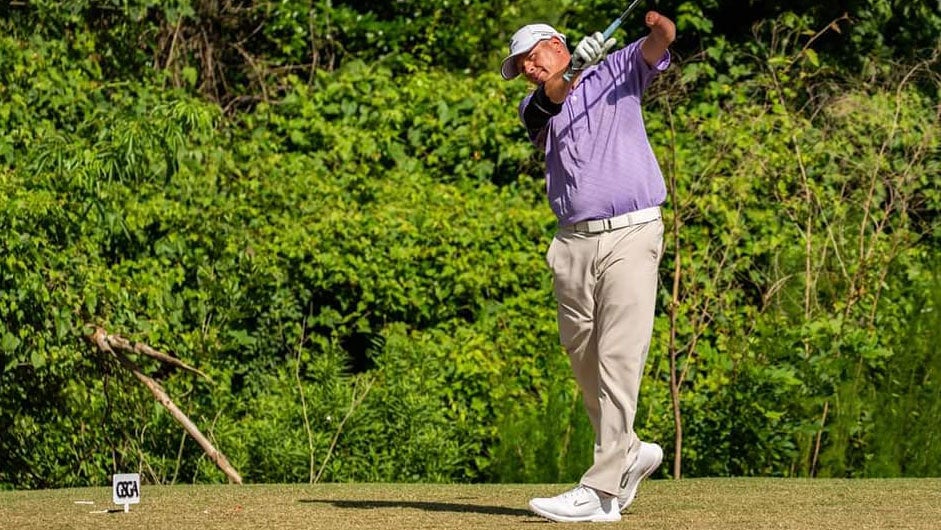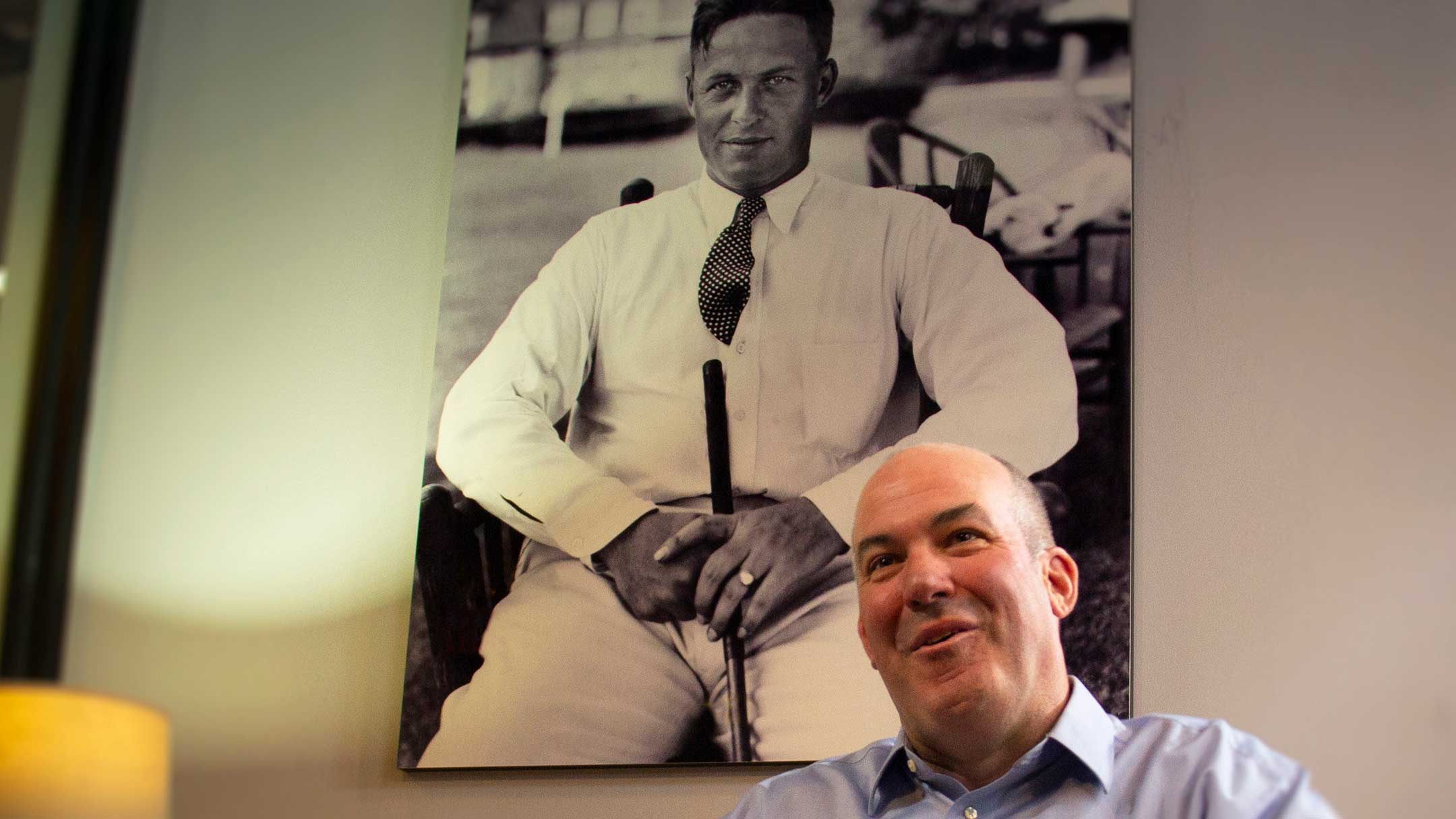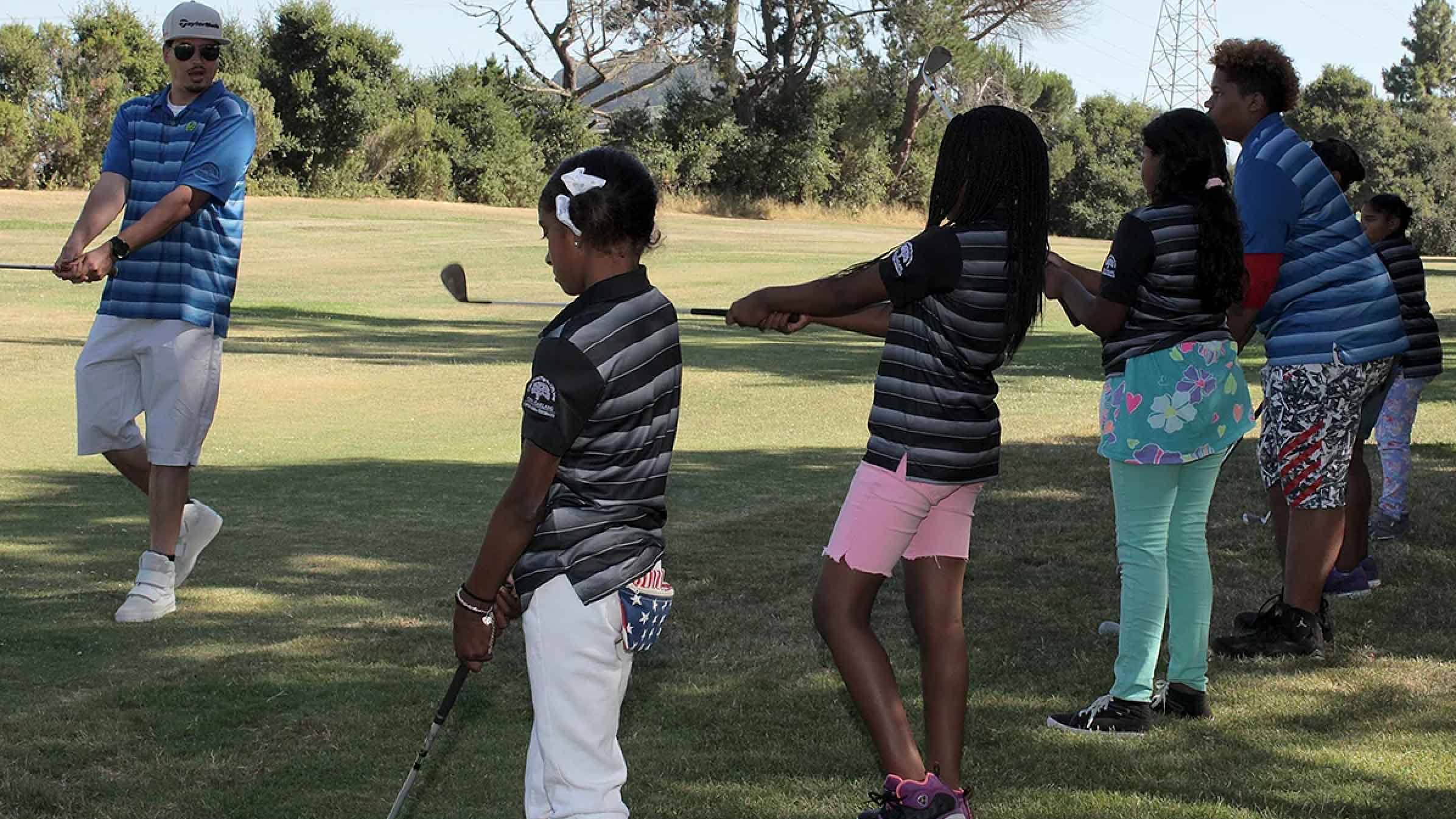How these collegiate golfers are using the game to promote mental-health awareness
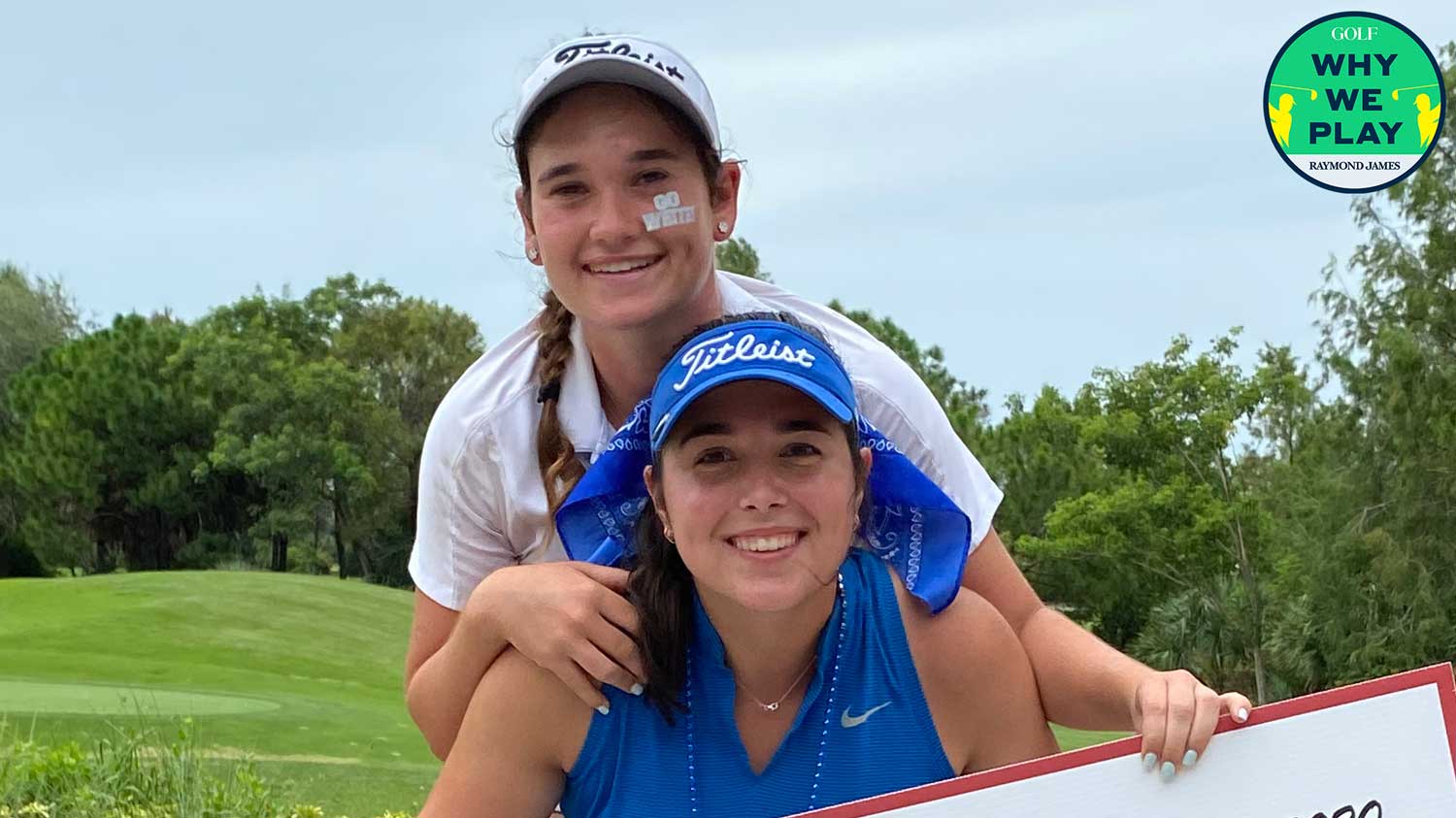
Taylor Roberts, top, and Phoebe Brinker helped found the Impact Cup.
courtesy
Taylor Roberts fell for golf as a young girl growing up in Florida, drawn to the beauty and challenge of the game, and the social connections it encouraged.
She played in her first tournament at age 10, competed through her teens on the junior circuit, and entered Florida State University in the fall of 2020 as the school’s top women’s golf recruit.
College golf can be a grind in any season.
But this was a period of punishing routine.
On a locked-down campus, Roberts spent long hours isolated in her dorm, only breaking from the Zoom-class drudgery to beat balls at the course or work out in the gym.
Golf had always been a joyous escape. Now, it came with a sense of dreary duty, part of her days’ monotonous rhythms. Other comforts, meanwhile, were out of reach. Religious services had been scrapped on campus, depriving Roberts of a ritual she valued. Trips home were off limits, too.
“The only time I saw my parents was at tournaments,” Roberts says. “And even then, I couldn’t hug them.”
Roberts made it through her freshman year, but when she got home that summer, it was “like a bubble burst.”
“I hadn’t fully realized how hard a time I’d been having,” she says. “But suddenly it all hit me, and I just broke down and cried.”
That fall, Roberts returned to Florida State, but she and the program were not a fit. Her mind was elsewhere. Her game was listless. Five weeks later, she withdrew from school and went home, mothballing her sticks.
As lonely as she felt, she was not alone.
In her struggles, Roberts had joined a growing number of her peers in what experts recognize as a mental-health crisis. No age group is immune, but young people rank among the hardest hit, according to studies from such leading organizations as the American Psychiatric Association and the National Institute of Mental Health.
The reported causes are varied and entangled: the pandemic, online poison, political conflict. The pressures of college — and college athletics — often add to a toxic mix.
A lot of people are scared to ask for help, and even if they do, it might not be there for them.
But if mental-health challenges are on the rise, so is an openness to address them.
At home in Florida, Roberts’ parents found her a therapist. The talk sessions helped, but Roberts also wanted more tangible tools, practical techniques she could employ daily. At her mother’s suggestion, she enrolled in a six-month course in what is known as dialectical behavior therapy, a cognitive treatment aimed at altering the patterns of destructive thinking. Roberts was leery at first, and then she wasn’t.
“It took some time and effort, but it literally changed the wiring in my brain,” she says. “I started thinking of life in a new way and appreciating all the little things I hadn’t noticed, even just the sunrise in the morning.”
Her love of golf reawakened, too.
Last fall, Roberts transferred to the University of Florida, where she resumed competing, her game, and her outlook, in sunnier shape. Around the same time, through a contact at the American Junior Golf Association, Roberts got in touch with Robert Jones Black, the great-grandson of the amateur legend Bobby Jones and the founder of the Generation Next Project, a non-profit devoted to youth mental health.
In addition to running fundraisers and educational outreach, Black has written widely on mental health. In a blogpost that he shared with Roberts, Black described the power of self-belief and the pitfalls of the quest for perfection. In her next tournament round, Roberts wrote the letters “B” and “I” on her ball: believe and imperfect, and wound up firing a 67, leapfrogging up the leaderboard.
Roberts was learning an important truth: Just as she could be her own worst enemy, she also be her greatest ally.
Along with this awareness came a realization of how fortunate she’d been to have family and other resources behind her.
Not everyone in darkness had such support.
“I was lucky,” Roberts says. “A lot of people are scared to ask for help, and even if they do, it might not be there for them.”
Roberts wasn’t one to let a thought like that sit idle. She also had a history of giving back. In the summer of 2020, fresh out of high school, Roberts and her close friend Phoebe Brinker, another standout player from the junior circuit, had organized a tournament called the Senior Cup, a celebratory competition with a charitable cause: the event raised $40,000 for front-line workers.
Now, nearly two years later, with the 2022 collegiate season underway, Roberts connected with Brinker again. She had in mind another charity event. This one would raise money in the name of mental health.
Though Brinker had not experienced serious mental-health struggles herself, she was keenly aware of the issue and eager to help.
“It’s so common these days, you see so many kids struggling, especially in college and through Covid,” says Brinker, who stars on the women’s team at Duke. “Taylor has so many great ideas, and I love to jump on them with her and do something with them.”
And so, they have.
On July 25 and 26, in partnership with East Lake Golf Club, Bobby Jones Golf Course and In Town Club, in Atlanta, and with logistical support from the American Junior Golf Association, Roberts and Brinker are co-hosting the Impact Cup, a tournament by collegiate golfers for collegiate golfers, with a focus on competition and mental fitness.
Along with two rounds of Ryder Cup-style play, the event will feature a robust schedule of exercises and conversations around mental health, including walking meditation sessions and presentations by experts on such topics as anxiety, depression, suicide and alcohol abuse.
“You’re going to have to be willing to get a little uncomfortable,” Roberts says.
Twenty-two players have already signed up for an event that is slated for 24 competitors, though Roberts says there is a chance that the field could be expanded to 28. Between them, Roberts and Brinker have already raised $70,000. They are asking that each player raise between $500 and $1,000. Proceeds will go toward the AJGA and the Generation Next Project.
“The fact is that I’ve been very privileged, and it’s not something I take for granted,” Roberts says. “I want to take the things I’ve learned and bring them to people who might not have access to that kind of information.”
It’s not too late to donate. You can get involved here.


